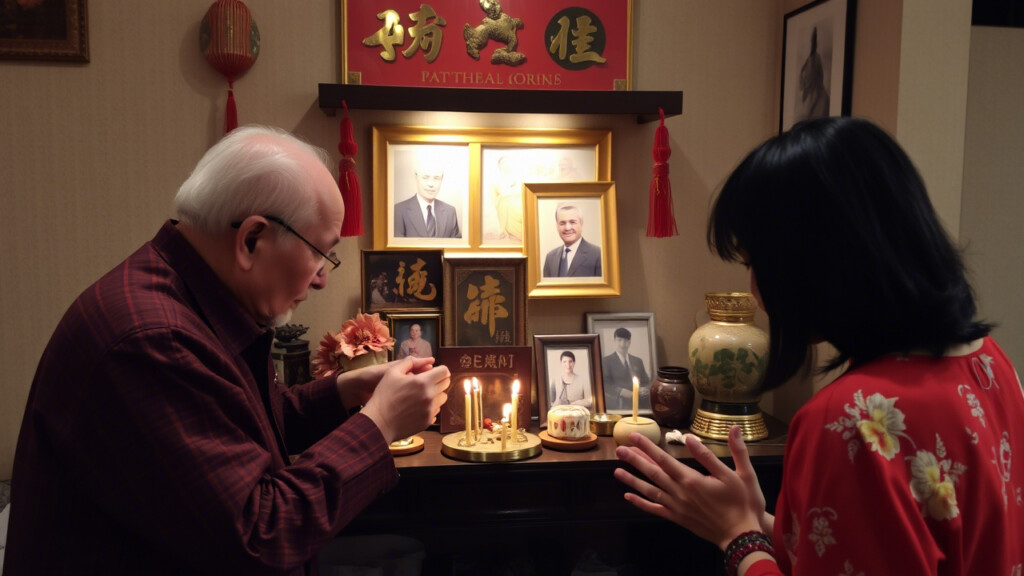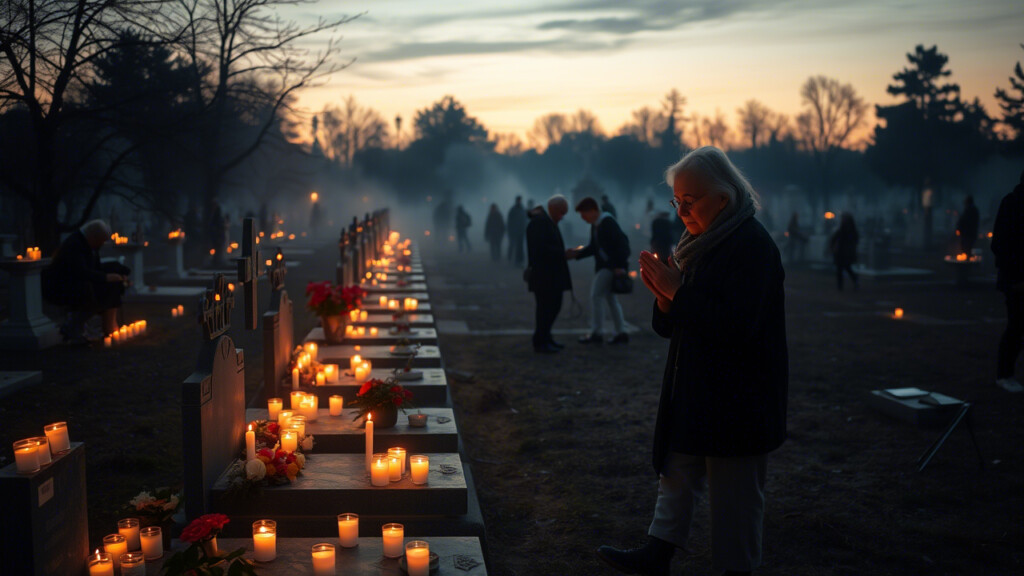Every time the slow drift of incense smoke fills the air, the world seems to pause. Amid the hustle and bustle of modern life, have we ever asked ourselves: is this prayer a true connection to the spiritual realm, or merely a custom passed down through generations that we follow out of habit?

The Origins of Ancestor Worship: A Timeless Belief
For centuries, humanity has believed that life does not end when the body returns to dust. Whether in the East or the West, though rituals differ, the core remains the same—the connection between the living and the departed.
🔹 In Vietnam, the ancestral altar is more than just a place to hold incense—it is the spiritual root of each family. Typically placed in the most sacred spot in the house, the altar holds ancestral portraits, incense burners, and offerings.
🔹 In Japan, Shintoism emphasizes ancestor worship through small family shrines. The Japanese believe that the spirits of their ancestors watch over them and bestow blessings.
🔹 In the West, All Souls’ Day or Memorial Day serves as a time for descendants to honor the deceased by visiting graves, offering flowers, or lighting candles.

A study published in the International Journal of Social Psychiatry found that ancestor remembrance rituals and ceremonial practices can provide people with psychological stability, especially in difficult times. Maintaining these traditions not only reduces stress but also fosters a sense of connection to the past and the community. This suggests that, regardless of form, belief in ancestors remains a vital factor in maintaining spiritual balance and intergenerational bonds.
Ancestor Worship from a Buddhist Perspective
Buddhism does not deny ancestor worship, but the focus is not on rituals—it is on filial piety. The Buddha once taught:
“There are two kinds of people that, if we show them respect and reverence, we will receive great blessings. They are our parents.”
Thus, filial devotion is not just about grand feasts and offerings but is also expressed through meaningful actions:
✅ Dedication of Merit – Instead of merely offering material goods, performing good deeds to generate merit for one’s ancestors. A study published in Frontiers in Psychology (2022) found that individuals engaged in charitable activities experience higher life satisfaction and fewer symptoms of depression. Additionally, a report from the Mental Health Foundation highlights that helping others reduces stress, improves mood, and boosts self-esteem, contributing to overall mental well-being.
✅ Upholding Morality – Avoiding wrongdoing and living righteously so that ancestors may benefit from the accumulated merits.
✅ Ullambana Festival (Vu Lan) – A Time for Filial Piety – This occasion serves as a reminder that honoring ancestors is not just about remembrance but also about practical actions.
Clearly, Buddhism does not view ancestor worship merely as religious belief, but as a path of self-cultivation, guiding individuals to live more virtuously.
Traditional Values and Adaptation in the Modern Era
The pace of modern life has led many families to simplify elaborate rituals, yet the essence of ancestor worship remains unchanged:
➡️ Smaller Altars, Unwavering Devotion – Many Vietnamese living in apartments or urban homes cannot maintain large ancestral altars like before but still dedicate a small sacred space for remembrance.
➡️ Less Paper Offerings, More Good Deeds – Instead of burning excessive votive paper, many now choose to perform acts of charity to dedicate merit to their ancestors.
➡️ Digital Ancestor Worship in the Digital Age – For overseas Vietnamese without traditional altars, remembrance takes new forms:
- Virtual altars on phones or computers.
- Online memorial platforms such as Vietnam Memory or Ancestry.com.
- Social media tributes, using digital platforms as a way to honor and remember ancestors.
Science has yet to prove the existence of ancestors after death, but no one can deny the immense spiritual and social value that ancestor worship brings.
Faith or Tradition? The Answer Lies Within Each Person.
✔️ For those with deep belief, it is a spiritual connection.
✔️ For those who see it as duty, it is a way to preserve family tradition.
✔️ For skeptics, it may be merely a cultural custom deeply ingrained in society.
Yet, no matter the perspective, when an incense stick is lit, it remains a moment of reflection—facing our origins, our memories, and ourselves.
“Roots are where we return, whether by footsteps or by heart.”
